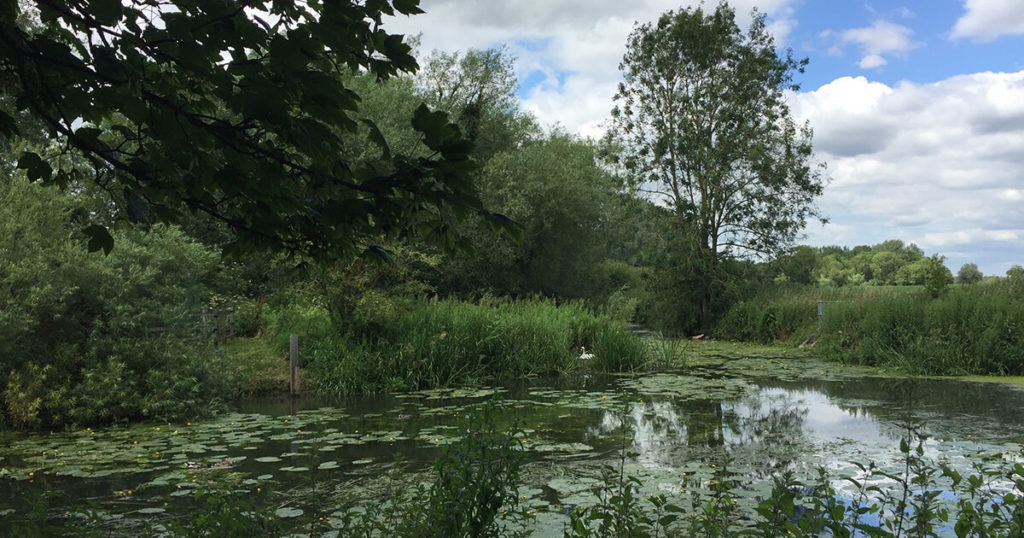
I’m starting to acclimate to England in July. The days here in Cambridge are often much like the soggiest parts of a summer in Maine or San Francisco—cold and gray. With a flick of a switch, though, there will be three- and four-day stretches of clarity and sunshine, the kind I only thought existed in bluebird Colorado. The wind wipes the weather slate clean. On a Monday I’ll be wearing fleece pants and drinking hot beverages, and 24 hours later, I’ll be sweating in front of multiple fans.
Most of my classmates have left town, flying back to real life in Germany, Cyprus, and the United States now that our dissertation grades are posted. I’ve stayed behind, not ready to say goodbye. Since I haven’t needed to go to the library in weeks, I’ve taken to walking in the fields. Whereas I usually would be cranking out paragraphs (or staring at my keyboard), I can now live my British idyll. It’s the same as my usual schedule, mind you, but now I ramble through fields instead of burrowing in the stacks. On rainy afternoons, I nap.
Sometimes I’ll walk through the city—often north to Castle Hill, to look down at all the steeples—but usually I like to head into the countryside southwest of town. I’m delighted by the anaerobic inefficiency of a good stroll—it takes hours to burn calories I would otherwise have trotted off. A plod out into the countryside is an afternoon affair, leaving me just enough time to swing by the pub or take a hot shower before dinner.
If I sneak through St. Catherine’s playing fields, I can take the high road and circle down to Grantchester village. In a matter of strides, I’m no longer in Cambridge—there are open fields of wheat, bordered by faint lines of trees and hedges. I’m on the lookout for wildlife, a hawk or a perhaps a muntjac—a majestic, glossy brown buck with corgi-length legs. They are hard to see when the grass is so high.
Eventually, the bridleways take me past horse paddocks, and I can see the backs of houses and Grantchester’s church steeple. I nod toward the poet Rupert Brooke’s vicarage and head down to the Cam, to smell, in his words, “the thrilling-sweet and rotten / Unforgettable, unforgotten / River-smell.” The path here is worn to glazed dirt by weekend trekkers, picnickers, and swimmers. The cows, though, rule these riverside fields. We are merely visitors to each pasture, passing through gates that clang shut behind. It’s not a good running path because of all the stops and starts, but as a walker, I unlatch each gate with the satisfaction of a sommelier uncorking a bottle to let the wine breathe. Each gate ushers in a new field and a question from Brooke’s poem: “Say, is there Beauty yet to find? / And Certainty? and Quiet kind?”

